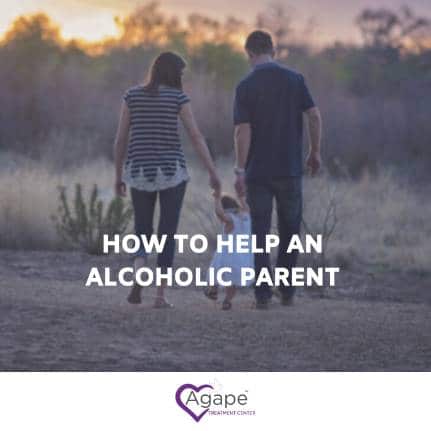
One of the most common issues that children of alcoholics face is feelings of abandonment, rejection, fear, and blaming themselves for the struggles of his/her alcoholic parent. Many children of alcoholics struggle with self-esteem issues and may even struggle with post-traumatic stress disorder (PTSD) as a direct result of the chaos of alcoholism. Some children may experience their parent’s alcoholism from birth, while others may not notice until later in life. The guilt associated with being a child of an alcoholic is untrue and incredibly unfair. No one is responsible for someone else’s alcoholism. Fortunately, there are a ton of resources and treatment options available for your alcoholic parent.
Table of Contents
ToggleSigns of Alcoholism
Alcohol use disorder and alcoholism affect each individual differently. Due to the social acceptability of alcohol, most alcoholics will defend their right to drink. Alcoholism is comprised of physical and psychological dependence upon alcoholism. In other words, your parent may not drink on a daily basis. However, it is likely that despite negative consequences, your alcoholic parent cannot stop drinking once they start. It is likely that the child of an alcoholic is able to identify his/her parent’s drinking habits better than anyone else. Here are signs and symptoms you can look for when identifying if your parent is struggling with alcoholism.
- Neglecting personal hygiene/appearance
- Gaining/losing weight
- Attempting to hide their drinking
- Drinking in isolation
- Hidden bottles of alcohol
- Lying about the amount or frequency of alcohol consumption
- Increasing amounts of alcohol over time
- Blackouts
- Memory loss
- Irritability/Mood swings
- Excusing drinking and poor behavior
- Prioritizing drinking over responsibilities
- Increasing difficulties at work or with finances
- Frequent hangovers
- Changes in behavior and social circles
- Inability to stop, despite negative consequences
- Experiencing alcohol withdrawal symptoms when he/she attempts to quit drinking
Approaching Your Alcoholic Parent About Their Alcoholism
Before you attempt to speak to your parent about his/her drinking problem, it is most important that you understand it is not your fault. You are not responsible for your parent’s alcoholism. It is also important that you understand you cannot force your parent to change. You cannot make them drink less, seek rehab, quit drinking, or even recognize that he/she has a problem.
If you are worried that your parent may have a problem with alcoholism, it is likely you are afraid to bring up this touchy subject with them. Perhaps you are afraid they may yell, get violent, move out, embarrass you, or even secretly consume more alcohol. While these may all be legitimate concerns, there are guidelines that may help you improve the outcome of this difficult conversation with your alcoholic parent. Remember, unless violence is a concern, the risks of initiating this conversation far outweigh the potential rewards of talking to your parent about his/her alcoholism. It is always suggested that you do not approach this conversation alone and follow along with these tips for talking to your alcoholic parent.
Tips for Talking to an Alcoholic Parent
- Do not initiate a conversation while your parent is intoxicated
- Remember you want to express your concerns that your parent may have a problem with alcohol, but you do not want to convince them they have a problem.
- Write down a list of concerns and be sure to include that the reason for having this conversation is because you care about them.
- Emphasize that you are having this conversation because you care about their well-being.
- List behaviors and incidents that you have observed and why they concern you.
- It is important that your parent feels the conversation is a two-way conversation so he/she does not get defensive or feel as if they are being cornered.
- Ask open-ended questions to maintain a two-way conversation.
- Do not speculate, pass judgement, or shame your parent for his/her drinking. Now is not the time to express anger, but rather express your concerns.
- Discuss how his/her behaviors have impacted you and how their drinking has caused harm to you.
Getting Help for an Alcoholic Parent
If the conversation with your parent goes well and they agree to get help, it is important you are prepared to provide them with the information you obtained about alcohol rehab programs. Offer your parent multiple different treatment options to choose from. Let your parent know that you are proud of them, you love them, and you support their decision to seek help.
Many alcohol rehab centers offer family therapy for individuals receiving treatment. Therefore, if this is an option for the treatment center your parent attends, it is important you show your support and participate in any available family therapy. During this time, it is also equally important for you to receive the support you need. Many family programs offer guidance and resources to address your needs as well. Participation in a family program may initially bring up feelings of anxiety and stress. However, over time, you will have a sense of relief, renewed hope, and realistic expectations about recovery.






